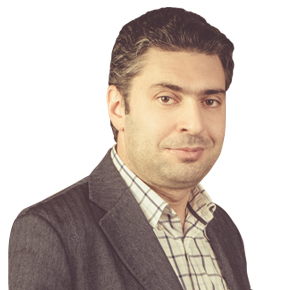A serious discussion has unfolded in Armenia and Diaspora about the latter’s role and format of participation in the parliamentary elections. Should Armenian Diaspora take part in the election process of Armenia? If yes, what dividend and potential problems could we face? What is the #CitizenObserver initiative?
The relevance of getting those questions answered has increased drastically. The dramatic challenges of April and July 2016 in Armenia and Artsakh facilitated that greatly. The obvious became evident – maintaining peace and development for Armenia is possible only in case of real, quality changes in the country’s domestic and foreign policy, which therefore implies a drastic review of the content and the form of the Armenia-Diaspora dialogue.
I mean a “reload” of the relations with more than 2/3 of our nation, living outside of Armenia in over 100 countries: the new Armenian Diaspora, formed after the fall of the USSR as a result of migration from Armenia, and the traditional Diaspora, formed mostly after the Armenian Genocide in the early 20th century.
One of the new, relevant topics in this context is the involvement of Armenian Diaspora in construction of a law-governed national state with developed political system. The established mechanisms can differ from organization of regular participation of Armenians as independent observers during elections in Armenia to institutional presence of Diaspora in the legislative and executive agencies of Armenia. Many states with Diasporas are trying to find the most effective models of interaction. I am certain it’s time for Armenian authorities to initiate those difficult, but important discussions.
That brings about a reasonable question, why should the authorities be the party to come forward with initiative? On the surface, at least in the short-term perspective, strengthening of Diaspora’s role in Armenia’s political life is very inconvenient for them. Let’s imagine that dozens of thousands of Armenian citizens, permanently residing abroad, receive the right to vote again in Armenian embassies, probably even online. Naturally, many of the migrants, who left Armenia because of unfortunate economic and other conditions, are most likely carriers of oppositional moods, and that could affect the elections.
However, let’s look at the other side of the coin. The authorities can take responsibility for the biggest problem we are facing – depopulation of Armenia – and can stop viewing it as a short-term solution of economic problems, lessening of social tension and political processes. They can realize and admit this basic principle – accuracy of the vector of Armenia’s development, efficiency of Government’s efforts and programs of any political parties and powers will now be measured by two key indicators: the rate of migration and repatriation.
That display of political will and courage could greatly help in restoring Diaspora’s now lost trust towards Armenia and its state institutions. It will result in significant increase of Diaspora’s involvement in social and economic development of Armenia, growth of efficiency and competitiveness of the political model of Armenia’s development, optimization of structures, agenda and methods of work in Diaspora itself, and strengthening of the country’s position on the global stage. The authorities can take that risk through realizing that more than 90 countries follow proactive policy towards involvement of their citizens, living abroad, in the elections.
It’s time to make that decision now also because over the last few years we witnessed rapid growth of civil society in the country. In 2016, we saw multiple organizations and informal societies in Armenia and Diaspora organize their resources, take active participation in aiding the families of the soldiers who were wounded or killed during the military operations in Artsakh in April, and provide significant assistance to the army in medical, humanitarian and other issues. Those activities lead to a number of serious changes in the work of the government, from staff decision to new programs and approaches.
In 2017, several organizations and informal societies mobilized around the #CitizenObserver initiative. Its primary objective is to develop the institution of independent election observers. Public control during elections will make it possible to maximally limit the possibility of result fraud and illegal impact on the expression of the will of voters by various parties and powers, to increase the trust of Armenian citizens and members of Diaspora towards the changes in Armenia.
The good news is that Armenia needs only 4000 observers to cover all voting stations (two observers per station). It’s good to see that over 2800 people already registered as observers 1.5 month ahead of the elections. That is twice more than ever before. Most of them are Armenian citizens and residents, and repatriated persons.
Who can become an independent observer and what is required for that? Any person interested can do it regardless of citizenship and level of knowledge of Armenian language. You need to register on the website beforehand and take a two-day training. For people residing abroad the training can be organized online.
We shouldn’t underestimate another possibility for the citizens who live outside of Armenia - come to the country and vote during the elections by their registered address.
After all these years of restoring the country’s independence, we all need to hold really free and fair elections in Armenia at any cost, and get a victory here. Any of us, living abroad or in Armenia, can contribute to achieving that today. Definitely, that will help form the long-awaited positive expectations in Armenia and Diaspora and the positive impulses in all key directions of Armenia’s development.
Vartan Marashlyan is co-founder and CEO of Repat Armenia.
These views are his own.























Comments
Dear visitors, You can place your opinion on the material using your Facebook account. Please, be polite and follow our simple rules: you are not allowed to make off - topic comments, place advertisements, use abusive and filthy language. The editorial staff reserves the right to moderate and delete comments in case of breach of the rules.